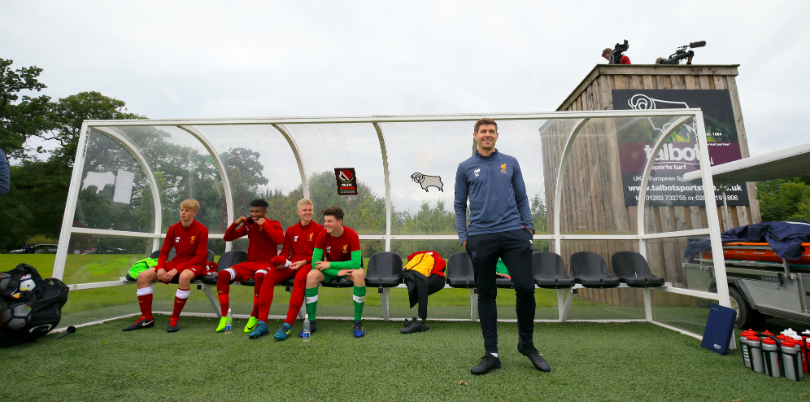
The best features, fun and footballing quizzes, straight to your inbox every week.
You are now subscribed
Your newsletter sign-up was successful
Want to add more newsletters?

Five times a week
FourFourTwo Daily
Fantastic football content straight to your inbox! From the latest transfer news, quizzes, videos, features and interviews with the biggest names in the game, plus lots more.

Once a week
...And it’s LIVE!
Sign up to our FREE live football newsletter, tracking all of the biggest games available to watch on the device of your choice. Never miss a kick-off!
Join the club
Get full access to premium articles, exclusive features and a growing list of member rewards.
You played under some famous captains, but do you think football is developing leaders anymore?
We’re going through an era of people talking about coaches. But we don’t seem to be producing leaders. Look at most teams – they lack leaders. In the Premier League, I remember the likes of Steven Gerrard, Tony Adams, Paul Ince, but I’m really not sure how many of them are left. Society has changed; I came through football when there was a massive drinking culture. People said that wasn’t good for the game, now you hear it’s bad for players to wear headphones. People do different things to tune into what they need to do. Are players more insular now? I know players at QPR mix and have a bite to eat together – the camaraderie seems good.
Are players wrapped up in cotton wool too much?
If you’re in an academy from the age of six to 23 and you’ve gone that far, everything about it becomes normal. So, you don’t know any other aspect of life. Your attitude is completely different. The system I came through was different. A footballers’ life can be a dream – facilities, money, things you can do. But the real world is very different and modern players don’t know any different.
Can you talk to players the same way now?
You can’t. I went to a talk with Sir Alex Ferguson in Qatar and someone asked him that same question. He said he has had to adapt to the modern day player. The modern player won’t let you throw cups of tea at him to get his attention. They’re wired up differently. Back in the day people would’ve responded differently. But that’s not football – that’s society. You can’t shout at your kids now without being told you’re wrong. I used to get a few bollockings – I preferred an arm round me – but a bollocking didn’t stop me from playing, I carried on doing what I was doing.
Did certain managers have ways of building character?
George Graham was one of the hardest managers I worked for. He was one of the best but one of the hardest. You had to work so hard during the week – he made sure you realised what the physical aspect of the game was on the Saturday by running you hard during the week.
You came through non-league – how did that build your character?
I knew what it was like to work for a living so I’d seen the other side of life. It made me more determined to make sure I made a success of my career. Mental toughness is an interesting subject. We had different experiences to modern players. We’d do pre-season training where we’d run as hard as possible, with no science behind it, and that was seen as mental toughness. But now we have sports scientists and data which tells us how hard a player needs to be working.
What did a typical day look like?
I used to be up at 6am and be in work for 7:30/8am, I’d work until 5 and when I was playing non-league I’d travel on a train and then a bus – sometimes two buses to get to Southall and do the same journey back home. Then in the morning I’d go back to work. You see the other side. When I came into football you would train for two hours and then go home.
The best features, fun and footballing quizzes, straight to your inbox every week.
 Join The Club
Join The Club










